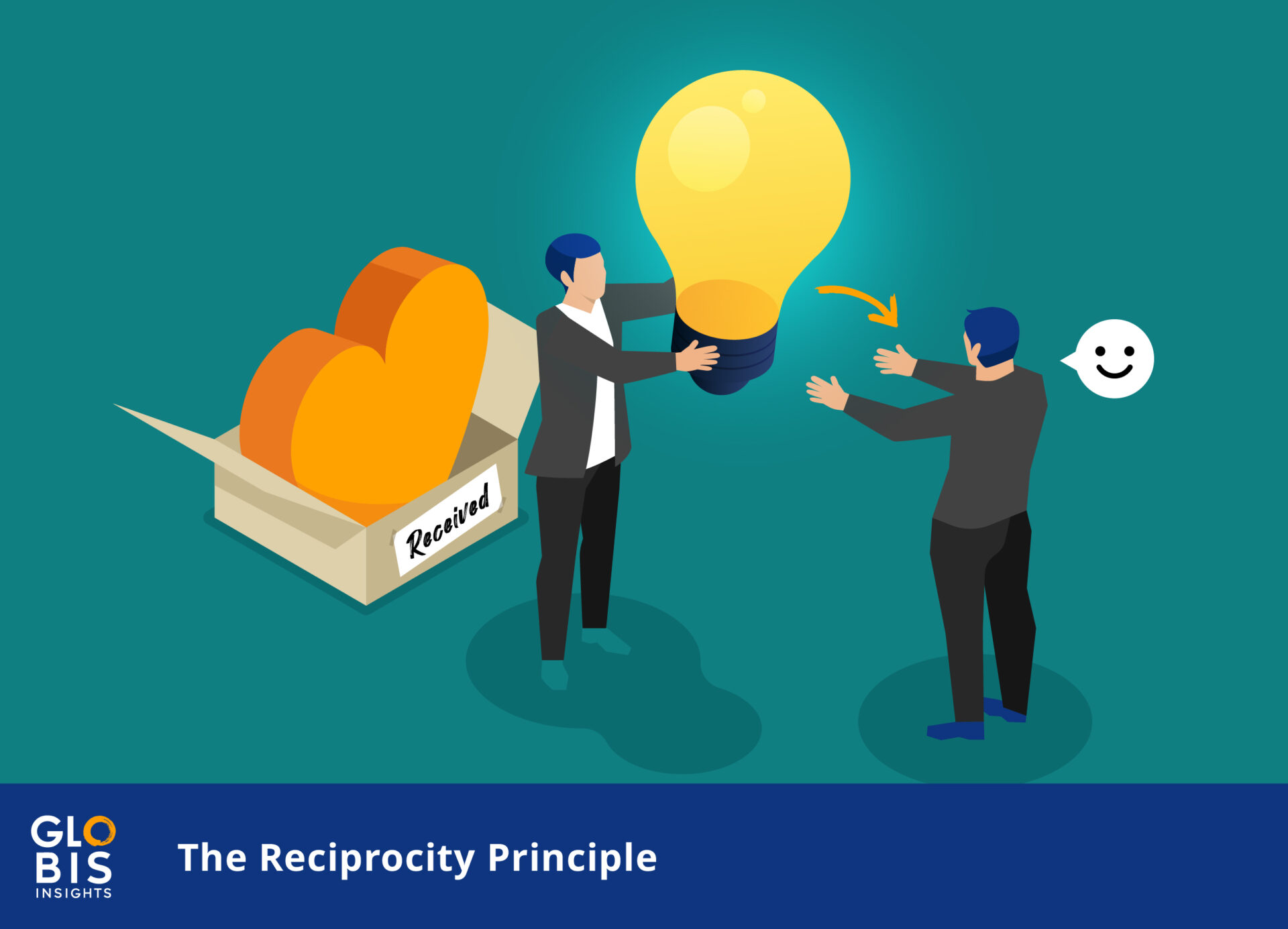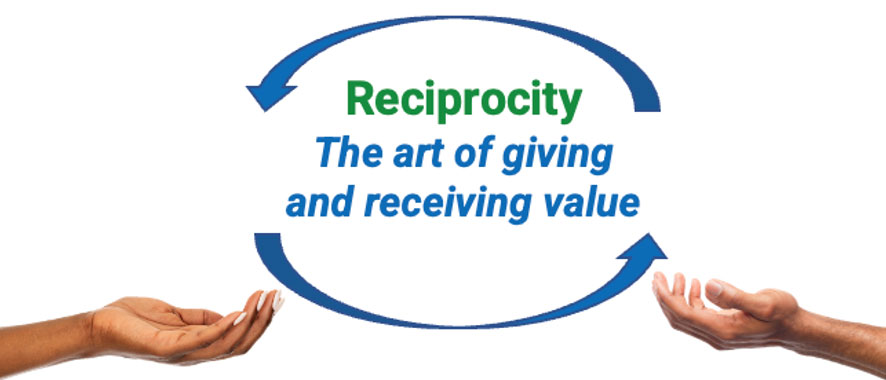The Allure of Favor: Exploring the Power of Reciprocity in Human Interaction
Related Articles: The Allure of Favor: Exploring the Power of Reciprocity in Human Interaction
Introduction
With enthusiasm, let’s navigate through the intriguing topic related to The Allure of Favor: Exploring the Power of Reciprocity in Human Interaction. Let’s weave interesting information and offer fresh perspectives to the readers.
Table of Content
The Allure of Favor: Exploring the Power of Reciprocity in Human Interaction

The human experience is inherently social. We are creatures of connection, constantly navigating the intricate web of relationships that shape our lives. At the heart of this social fabric lies a powerful principle known as reciprocity: the tendency to return favors, kindness, and good deeds. This principle, often referred to as the "charm of favor," underpins a vast array of human interactions, from simple gestures of goodwill to complex social structures.
Understanding the Charm of Favor:
The charm of favor operates on the fundamental human desire for fairness and balance. When someone extends a favor, it creates an implicit obligation on the recipient to reciprocate in some way. This obligation is not necessarily a contractual one, but rather a social norm deeply ingrained in our collective consciousness. It stems from the evolutionary advantage of cooperation and mutual aid, which has been essential for human survival throughout history.
The Psychological Foundation:
The psychological underpinnings of reciprocity are rooted in various cognitive biases and emotional responses. These include:
- The Norm of Reciprocity: This social norm dictates that we should return favors and kindness received. It is a powerful motivator for prosocial behavior, fostering a sense of obligation and encouraging cooperation.
- The Gratitude Effect: Receiving a favor evokes feelings of gratitude, which in turn motivates us to reciprocate. Gratitude serves as a powerful emotional cue, reinforcing the bond between individuals and promoting future exchanges of favors.
- The Consistency Bias: We are more likely to reciprocate favors from people we perceive as consistent and reliable. This bias helps us build trust and maintain stable relationships, as we can rely on others to reciprocate our kindness.
The Power of Reciprocity in Action:
The charm of favor manifests itself in various ways throughout our lives:
- Social Networks: Reciprocity is the bedrock of social networks, where individuals exchange favors and support, building strong bonds and fostering a sense of community.
- Business and Commerce: Reciprocity is a fundamental principle in business, driving transactions, negotiations, and long-term relationships. Companies often engage in reciprocal marketing strategies, offering incentives and rewards to encourage customer loyalty.
- Political Systems: Reciprocity plays a crucial role in political systems, where favors and alliances are exchanged between individuals and groups to achieve specific objectives.
- International Relations: On a global scale, reciprocity underpins diplomacy and international cooperation, fostering trust and promoting peaceful coexistence.
Benefits of Embracing the Charm of Favor:
Recognizing and harnessing the power of reciprocity can yield significant benefits:
- Stronger Relationships: Reciprocity fosters trust, strengthens bonds, and enhances the quality of relationships. By extending favors and reciprocating kindness, we create a positive feedback loop that deepens connections and strengthens social ties.
- Increased Cooperation: Reciprocity encourages cooperation, leading to more efficient and productive outcomes. When individuals feel obligated to reciprocate favors, they are more likely to work together towards common goals.
- Enhanced Well-being: Acts of reciprocity contribute to a sense of well-being and happiness. Receiving and giving favors fosters feelings of gratitude, belonging, and self-worth, enhancing overall satisfaction with life.
FAQs on the Charm of Favor:
1. What if someone doesn’t reciprocate a favor?
The absence of reciprocation can be a complex issue. It’s crucial to remember that not everyone operates with the same understanding or appreciation of the norm of reciprocity. In such cases, it is essential to assess the situation and consider the individual’s circumstances. If the lack of reciprocation is intentional or disrespectful, it may be necessary to re-evaluate the relationship and adjust expectations.
2. Can the charm of favor be manipulated?
Yes, the principle of reciprocity can be manipulated by individuals seeking to exploit others. This can involve offering favors with hidden agendas or using social pressure to coerce reciprocation. It is crucial to be aware of such manipulative tactics and to exercise caution when accepting favors from individuals with unclear intentions.
3. Is there a limit to the charm of favor?
The charm of favor is not limitless. There are ethical and practical boundaries to the extent to which we can expect reciprocation. It is important to be mindful of the nature and value of the favors exchanged, ensuring that they are mutually beneficial and not exploitative.
Tips for Leveraging the Charm of Favor:
- Be Mindful of Your Actions: Every interaction, no matter how small, can contribute to the reciprocity dynamic. Be conscious of the favors you offer and receive, ensuring that they are genuine and mutually beneficial.
- Express Gratitude: Acknowledge and express gratitude for favors received. This reinforces the positive feelings associated with reciprocity and encourages future exchanges.
- Be Generous in Spirit: Offer favors freely and without expecting immediate reciprocation. True generosity fosters trust and strengthens relationships over time.
- Cultivate a Reciprocal Mindset: Approach interactions with a willingness to both give and receive. This mindset fosters a sense of balance and encourages mutually beneficial relationships.
Conclusion:
The charm of favor, rooted in the principle of reciprocity, is a fundamental force in human interaction. It shapes our social structures, drives our economic systems, and influences our personal relationships. By understanding and embracing this powerful principle, we can cultivate stronger connections, foster cooperation, and enhance our overall well-being. Recognizing the inherent value of reciprocation allows us to navigate the complex tapestry of human interaction with greater understanding, compassion, and ultimately, a deeper sense of belonging.








Closure
Thus, we hope this article has provided valuable insights into The Allure of Favor: Exploring the Power of Reciprocity in Human Interaction. We appreciate your attention to our article. See you in our next article!